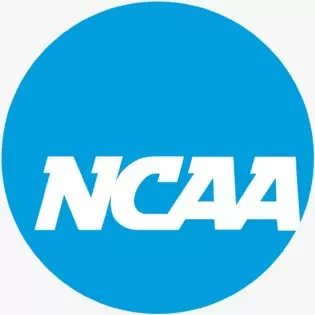Something real shady is brewing behind those shiny conference logos. Power schools are being handed a pen and told, “Sign this—or get out.” And no, it’s not a lease or an NIL deal. It’s a straight-up “blood oath” contract from the top dogs—SEC, Big Ten, ACC, Big 12—locking schools into new rules with no escape.
The recent NCAA settlement has sent shockwaves through the world of college sports. While many celebrated the end of the long-standing legal battle over athlete compensation, the fallout from the settlement has escalated tensions between power schools and the NCAA. As the dust settles, power schools are preparing for a tense legal confrontation that could change the landscape of college sports forever.
For years, the NCAA has maintained strict rules prohibiting student-athletes from receiving any form of compensation for their athletic abilities. This has been a contentious issue, with many arguing that it is unfair for the NCAA and its member schools to profit off the hard work and talent of these athletes without providing them with any form of compensation. The NCAA, on the other hand, has argued that amateurism is a core principle of college sports and that allowing athletes to be paid would undermine the integrity of the game.
However, the recent settlement has forced the NCAA to make significant changes to its rules. Under the new agreement, student-athletes will now be allowed to profit from their name, image, and likeness (NIL). This means that they can now enter into endorsement deals, sell autographs, and even monetize their social media presence. While this may seem like a victory for student-athletes, the reality is that the power schools are the ones who will benefit the most from this change.
The power schools, which include the SEC, Big Ten, ACC, and Big 12, have long been the dominant forces in college sports. These schools have the biggest budgets, the most resources, and the most successful athletic programs. They also have the most to lose if the NCAA’s strict rules on amateurism were to be lifted. That’s why they have been quietly working behind the scenes to secure their position in the new era of college sports.
The “blood oath” contract being handed out to power schools is a direct response to the NCAA settlement. These contracts lock schools into new rules that heavily favor the power schools. They include provisions that give these schools a greater share of the revenue generated by student-athletes’ NIL deals and allow them to offer more lucrative endorsement opportunities to their athletes. In essence, these contracts give the power schools even more power and control over the college sports landscape.
But the power schools are not the only ones preparing for a legal battle. The NCAA is also gearing up for a fight. They have already filed a lawsuit against the state of Florida, which passed a law allowing student-athletes to profit from their NIL. The NCAA argues that this law is unconstitutional and that it will create an uneven playing field for schools in different states. This lawsuit is just the beginning, as the NCAA is expected to challenge similar laws in other states as well.
The tension between the power schools and the NCAA is at an all-time high. The power schools feel that the NCAA has been forced to make changes that go against their core principles, while the NCAA sees the power schools as a threat to their authority. This tense legal confrontation could have far-reaching consequences for college sports. It could lead to the formation of a new governing body for college sports or even the creation of a professional league for student-athletes.
But amidst all the chaos and uncertainty, there is one thing that is clear – change is coming to college sports. The NCAA settlement has opened the door for student-athletes to finally receive the compensation they deserve. It has also exposed the power dynamics at play in college sports and the need for a more equitable system. While the road ahead may be bumpy, it is also filled with opportunities for positive change.
The power schools may have the upper hand for now, but the tide is turning. Student-athletes are no longer willing to accept the status quo, and the public is increasingly supportive of their cause. The power schools may have signed their “blood oath” contracts, but they cannot ignore the winds of change. The future of college sports is in the hands of those who have long been denied a seat at the table – the student-athletes. And with their newfound power, they have the potential to

